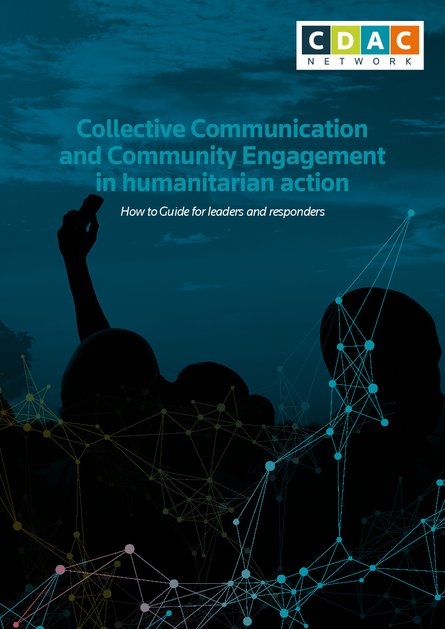
This guide suggests practices to support an active role for communities in humanitarian services and decision-making, improve access to information and keep people connected to support their own ways of coping. It emphasises a collective approach where humanitarian actors coordinate, collaborate and are held accountable for their actions. It is based on action research into a number of initiatives and organisations as well as gap analyses and recommendations for strengthening and scaling practice.
The guide is intended primarily for practitioners and leaders working in national and international humanitarian and media development organisations as well as other entities involved in preparedness, response and recovery. Experience in the humanitarian sector and prior knowledge of relevant policies, plans and processes is assumed, as is familiarity with the humanitarian architecture, the humanitarian programme cycle and accountability to affected populations.